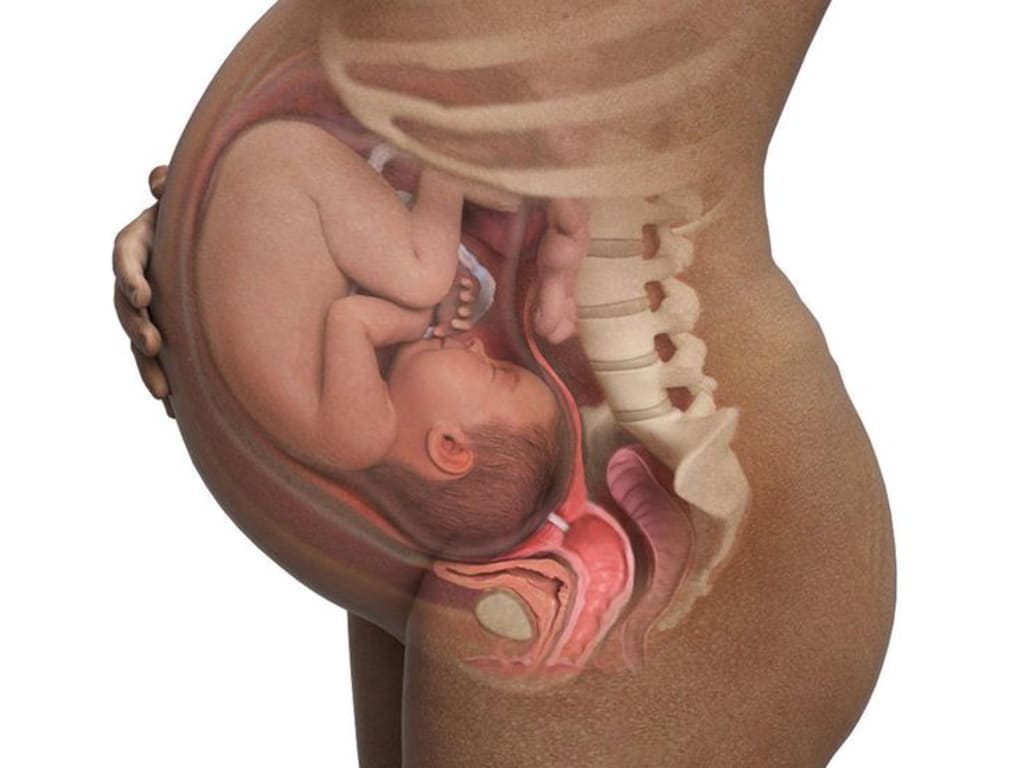EFFECTS OF PREGNANCY
This discovery Will Surprise you

Muscles and joints undergo shifts and movements. The heart's rhythmic beats quicken, while blood surges through arteries and veins. Throughout the course of pregnancy, every organ in the body undergoes transformations. These changes are initiated by a complex interplay of hormones, commencing shortly after pregnancy commences.
Merely days after fertilization, the embryo implants itself in the uterine lining. Herein lies a unique challenge: since the embryo's DNA doesn't precisely match that of the mother, the immune system theoretically should recognize it as an intruder, launching an attack akin to how it combats bacteria and other harmful microbes. The predicament arises from the necessity for the mother's immune system to safeguard both herself and the developing fetus without reacting as it typically would.
The solution isn't as straightforward as simply dampening the immune response. Rather, it entails a multifaceted interaction that we are only just beginning to comprehend, involving an array of immune cells—some of which appear to shield the fetus from assaults by other immune cells.
Furthermore, the body generates an antibacterial mucus plug on the cervix, effectively warding off pathogens and remaining sealed until labor commences. As the pregnancy progresses, the expanding uterus ascends and widens to accommodate the growing fetus. In response, hormones like progesterone and relaxing signal the muscles to relax. This relaxation extends to the muscles responsible for propelling food and waste through the digestive tract, rendering them sluggish and leading to a slowdown in the passage of contents, resulting in constipation.
Moreover, the loosening of muscles near the upper stomach may facilitate the escape of acid into the esophagus and throat, contributing to heartburn and reflux. These changes can exacerbate morning sickness, which is influenced in part by the hormone HCG and may manifest at various times of the day.
Simultaneously, as the uterus enlarges, it exerts pressure on the diaphragm—the muscle that facilitates chest expansion and contraction during breathing. This compression limits the diaphragm's range. To compensate, progesterone acts as a respiratory stimulant, prompting the pregnant woman to breathe more rapidly, ensuring both she and the baby receive sufficient oxygen despite reduced lung capacity. Consequently, this might cause the pregnant woman to experience shortness of breath.
Furthermore, the kidneys ramp up the production of erythropoietin—a hormone that increases red blood cell production.
The kidneys also retain excess water and salt rather than filtering it out into urine, contributing to an increase in blood volume of 50% or more in a pregnant woman. However, this expanded blood volume is somewhat diluted, with only a 25% increase in red blood cells. Typically, the body manufactures blood cells using iron from our food. Still, during pregnancy, the fetus also forms its own blood supply from nutrients in the mother's diet, leaving fewer nutrients, including iron, for the mother.
The heart must work diligently to pump this increased blood volume through the body and placenta. As a result, the pregnant woman's heart rate increases. However, understanding the precise changes in blood pressure during a healthy pregnancy remains an important area of research, as some of the most severe complications are related to heart and blood pressure issues.
The enlarging uterus may exert pressure on veins, leading to fluid accumulation in the legs and feet. If it compresses a significant vein known as the inferior vena cava, it could interfere with blood returning to the heart, potentially causing a rapid drop in blood pressure after prolonged standing.
Some of these physiological changes begin to reverse even before birth. Shortly before delivery, the fetus descends, alleviating pressure on the diaphragm and allowing the pregnant woman to breathe more deeply. During labor and childbirth, a significant portion of the extra fluid in the body is lost when the amniotic sac ruptures.
In the weeks following birth, the uterus contracts and gradually returns to its pre-pregnancy size. Pregnancy also has an impact on the brain, although these effects remain among the least understood aspects of this remarkable journey. Recent studies have revealed disparities in brain scans following pregnancy and early parenthood.
These transformations also appear to have an adaptive nature. This suggests that they could potentially enhance parenting skills, such as an increased capacity to interpret facial expressions, which becomes essential since infants cannot communicate verbally.
The limited knowledge regarding the impact of pregnancy on the brain underscores a broader reality: historically, the majority of research pertaining to pregnancy has concentrated on the developing fetus rather than the pregnant women themselves. Pregnancy experiences exhibit substantial diversity, both within the realm of healthy pregnancies and amid the backdrop of complicating health conditions. Novel research endeavors will illuminate the reasons behind this variability and facilitate the development of effective treatments where necessary.
In the interim, it's crucial to recognize that each pregnancy is a unique journey, and any specific inquiries should be directed to a medical professional. Presently, we are embarking on an exciting juncture where increasing research efforts are dedicated to unraveling the astonishing biology of pregnancy.
About the Creator
Enjoyed the story? Support the Creator.
Subscribe for free to receive all their stories in your feed. You could also pledge your support or give them a one-off tip, letting them know you appreciate their work.






Comments
There are no comments for this story
Be the first to respond and start the conversation.